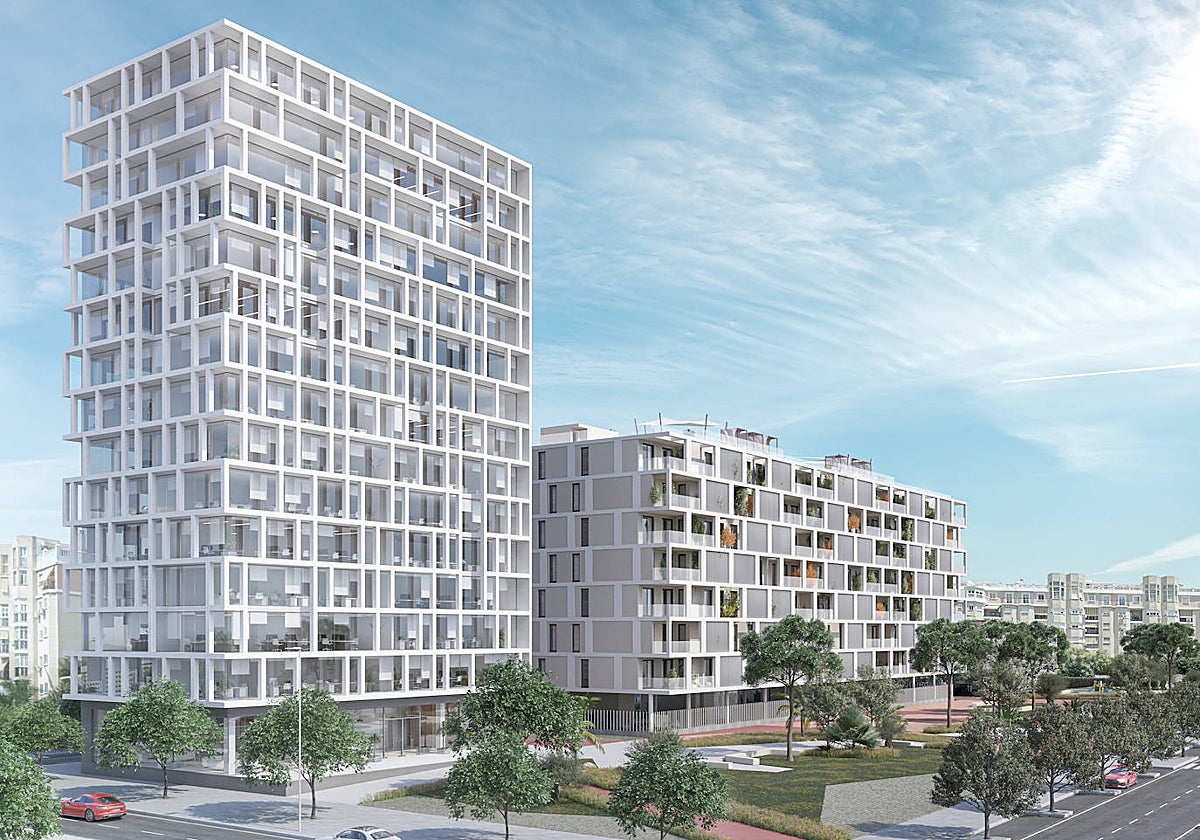Flex-living apartments: are they just a ploy for creating more tourist accommodation?
Such rentals are intended for stays of weeks or months, but they do not have specific regulations that prevent their holiday use
The escalation of rental prices and the conditions imposed by the 2023 urban lease law has created a breeding ground for new business models in property development in Spain, one of which has many companies betting on a different format of seasonal rentals. This phenomenon is already spreading throughout the major provincial capitals of Spain and Malaga city is no exception. Under the guise of terms such as "flex-living" or "co-living" there is the possibility of circumventing the state rental law to set up rentals for which there is currently no specific regulation to restrict the exact conditions under which they can provide this service. Furthermore, it leaves the market wide open for some flex-living rentals to be put to tourist use, thereby dodging the limitations that the authorities want to impose to control the proliferation of holiday rental homes in a given area.
One of the most recent examples of the proliferation of flex-living accommodation in Malaga city is in the tower that will dominate the urban development project that will occupy the void left by the demolition of the old Portillo car warehouse and repair shop on Avenida de Velázquez. As SUR reported last Sunday, the promoter of this development, Cela Properties, plans to kit out this tower - where the city's urban planners have granted permissions for a hotel or offices - with accommodation based on the style of an aparthotel and which is designed to provide more affordable prices and flexible terms to those people who need a place for a period of weeks or months.
Sources close to Cela Properties have assured the public that they are not going to be tourist flats, but are designed for highly-qualified, young professionals aged 25 to 45, who have a certain level of purchasing power and typically work as digital nomads. This is something similar to the project that the Moraval group has proposed on land for a hotel that it bought from Malaga city council next to the towers on the western strip of coast to set up a kind of aparthotel with 360 rooms with shared kitchens. Another example would be the 105 temporary accommodation units with communal areas that the Technology Park is building on Calle Severo Ochoa, opposite The Green Lemon space, to accommodate workers in the tech hub who need a place to stay for a short period of time.
At the Portillo site its developers have estimated that the ground floor plus a 13-storey tower with its façade facing towards Avenida de Velázquez could accommodate around 150 flex-living flats in one- and two-bedroom studios. Cela Properties believes that the rise in rental prices in Malaga is creating a situation in which this type of short-term rental business could be successful. Other developers have also set their sights on such a business model, as is the case with Nuovit Homes, which is going to build a project of 180 flex-living properties on the site left by the demolition of the Los Alamos hotel in Torremolinos.
Legal questions
However, the absence of a specific regulation on this accommodation model raises doubts about its implementation. In theory, flex living is a flexible rental model with no long-term commitments, in which it is possible for the tenant to choose the length of stay, from a few weeks to several months, without having to sign a long-term contract or pay high deposits. This type of accommodation usually includes cleaning services, maintenance, wifi, utilities and security. They often also offer common areas such as living rooms, kitchens, terraces or gyms.
However, it is still unclear what the limits are for their legal and urban planning suitability. This is the opinion of Mar Alcázar, lawyer in charge of the tourist accommodation section of the Malaga legal bar association, who called on the ruling bodies to regulate this model of temporary rentals so that they do not become a subterfuge for holiday rentals. "There is no specific regulation for these flex living figures, nor is there any jurisprudence, so it is necessary to create rules and controls so that this model of renting does not end up being for tourist use," she pointed out.
In the case of the land in Portillo and Torre del Río, these flats are to be built on land already designated for hotel use, but what happens when they are implemented in a building or on residential land? For Mar Alcázar the absence of a specific regulation for these rental models may result in a different use to the concept for which the projects are being advertised.
"It would be necessary to establish legal mechanisms so that the users of this type of accommodation have to justify that it is a temporary stay for work or other reasons, without constituting a prolonged residential settlement, as it would then have to be subject to the provisions of the Urban Lease Law," said this legal expert. In her opinion, this type of business should require a minimum stay of two months, as the Junta's decree regulating tourist flats since 2016 states that those rented for a period of up to 60 days can be considered as such.
However, the concept of flex living offers the possibility of occupying an accommodation for only one week, which opens the door to possible tourist use of that flat, thereby dodging the controls established by the Junta and some town councils for holiday lets. "There would have to be an inspection to control all this, and to see what is advertised on the tourist rental platforms, and to check in some way that the rental is needed for a temporary residential stay, not for tourism," insisted Alcázar, who trusts that Malaga city hall will take note and approve an amendment to the PGOU (the city's principal urban plan) that takes into account these new concepts as soon as possible.

